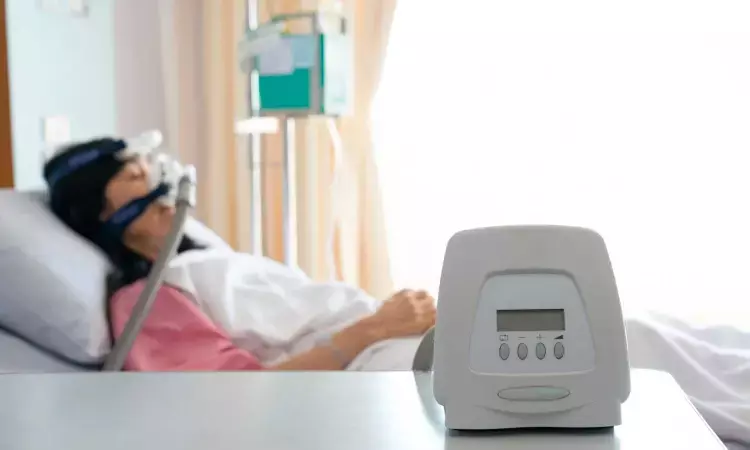- Home
- Medical news & Guidelines
- Anesthesiology
- Cardiology and CTVS
- Critical Care
- Dentistry
- Dermatology
- Diabetes and Endocrinology
- ENT
- Gastroenterology
- Medicine
- Nephrology
- Neurology
- Obstretics-Gynaecology
- Oncology
- Ophthalmology
- Orthopaedics
- Pediatrics-Neonatology
- Psychiatry
- Pulmonology
- Radiology
- Surgery
- Urology
- Laboratory Medicine
- Diet
- Nursing
- Paramedical
- Physiotherapy
- Health news
- Fact Check
- Bone Health Fact Check
- Brain Health Fact Check
- Cancer Related Fact Check
- Child Care Fact Check
- Dental and oral health fact check
- Diabetes and metabolic health fact check
- Diet and Nutrition Fact Check
- Eye and ENT Care Fact Check
- Fitness fact check
- Gut health fact check
- Heart health fact check
- Kidney health fact check
- Medical education fact check
- Men's health fact check
- Respiratory fact check
- Skin and hair care fact check
- Vaccine and Immunization fact check
- Women's health fact check
- AYUSH
- State News
- Andaman and Nicobar Islands
- Andhra Pradesh
- Arunachal Pradesh
- Assam
- Bihar
- Chandigarh
- Chattisgarh
- Dadra and Nagar Haveli
- Daman and Diu
- Delhi
- Goa
- Gujarat
- Haryana
- Himachal Pradesh
- Jammu & Kashmir
- Jharkhand
- Karnataka
- Kerala
- Ladakh
- Lakshadweep
- Madhya Pradesh
- Maharashtra
- Manipur
- Meghalaya
- Mizoram
- Nagaland
- Odisha
- Puducherry
- Punjab
- Rajasthan
- Sikkim
- Tamil Nadu
- Telangana
- Tripura
- Uttar Pradesh
- Uttrakhand
- West Bengal
- Medical Education
- Industry
Elevated Cystatin C Levels in obstructive sleep apnea-hypopnea syndrome tied to CV Risk and Disease Severity: Study Finds

China: A recent systematic review and updated meta-analysis have highlighted a concerning link between elevated cystatin C levels and obstructive sleep apnea-hypopnea syndrome (OSAHS). The research revealed that obstructive sleep apnea-hypopnea syndrome is linked to elevated serum cystatin C levels, a significant marker associated with an increased risk of major cardiovascular and cerebrovascular events, including stroke.
"Continuous positive airway pressure (CPAP) therapy has been shown to significantly lower cystatin C levels, highlighting its potential as an indicator of disease severity and treatment effectiveness," the researchers wrote in BMC Pulmonary Medicine.
Cystatin C, a protein typically involved in regulating the activity of enzymes that break down proteins, has emerged as a key marker in various health conditions, including those related to kidney function and cardiovascular health. Jie He, School of Clinical Medicine, Chengdu Medical College, Chengdu, Sichuan, China, and colleagues aimed to examine differences in cystatin C levels between patients with OSAHS and healthy controls while also evaluating its role in cardiovascular and cerebrovascular complications associated with OSAHS. Additionally, they investigated the effectiveness of surgical interventions and CPAP therapy in reducing cystatin C levels in affected patients.
For this purpose, the researchers comprehensively searched across medical databases, including PubMed, CNKI, EMBASE, Web of Science, and WanFang, to identify relevant studies on OSAHS published until October 1, 2024. They analyzed cystatin C levels in OSAHS patients and controls, assessed changes before and after surgery or CPAP treatment, and examined correlations between cystatin C and sleep indices. The study also evaluated the hazard ratio for cardiovascular and cerebrovascular disease risk. Meta-analyses were performed using standardized mean difference and correlation coefficients, applying fixed- or random-effect models based on heterogeneity. Statistical analysis was conducted using STATA, GraphPad Prism, and R.
The study led to the following findings:
- The final analysis included a total of 40 articles.
- Serum/plasma cystatin C levels were significantly higher in the OSAHS group compared to controls (SMD = 0.65).
- Subgroup analysis based on mean BMI, age, ethnicity, and study design consistently showed elevated cystatin C levels in OSAHS patients.
- CPAP treatment significantly reduced serum/plasma cystatin C levels in OSAHS patients.
- Increased cystatin C levels may act as a risk factor for stroke and major adverse cardiovascular and cerebrovascular events (MACC) in OSAHS patients.
- Serum/plasma cystatin C levels positively correlated with AHI scores and ODI.
The findings showed that patients with OSAHS exhibit significantly elevated serum/plasma cystatin C levels, which are associated with an increased risk of cardiovascular disease.
"Regular monitoring of cystatin C levels in OSAHS patients may help reduce the risk of chronic kidney disease and serve as a valuable clinical marker for assessing disease severity and treatment response. Further prospective cohort studies are needed to minimize the influence of confounding factors and establish the definitive role of cystatin C in evaluating OSAHS severity and associated health risks," the researchers concluded.
Reference:
Fu, N., Tan, X. & He, J. Association between elevated cystatin C levels and obstructive sleep apnea-hypopnea syndrome: a systematic review and updated meta-analysis. BMC Pulm Med 25, 56 (2025). https://doi.org/10.1186/s12890-025-03508-0
Dr Kamal Kant Kohli-MBBS, DTCD- a chest specialist with more than 30 years of practice and a flair for writing clinical articles, Dr Kamal Kant Kohli joined Medical Dialogues as a Chief Editor of Medical News. Besides writing articles, as an editor, he proofreads and verifies all the medical content published on Medical Dialogues including those coming from journals, studies,medical conferences,guidelines etc. Email: drkohli@medicaldialogues.in. Contact no. 011-43720751


